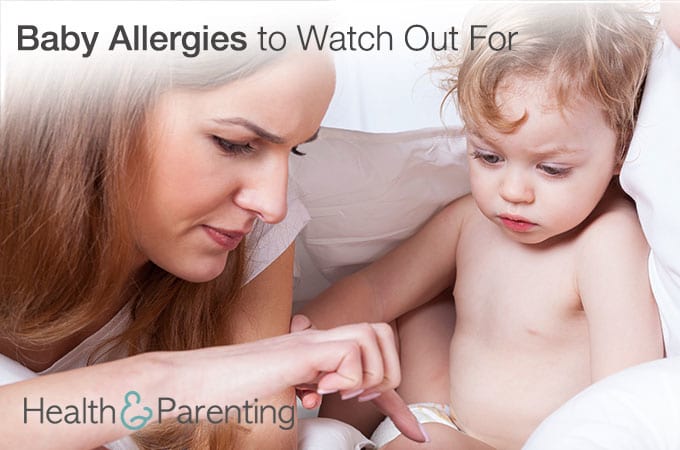One of the first things most new parents realize when they hold their newborn in their arms is just how fragile that new baby is. Their little heads need your support, their little bodies melt against yours, and they are completely and totally reliant upon you to meet their needs.
It is both an overwhelming and awe-inspiring amount of responsibility.
Within a few days, you usually get a hang of it. Sure, you’re exhausted, but you know how to feed and hold your baby. And you feel like you’re figuring things out.
Then, your baby develops a rash, or persistent cold symptoms, or something stomach related, and you feel at a loss once more.
It isn’t uncommon at all for infants and young children to experience a wide range of allergies. They may grow out of some of these baby allergies with time, while others may persist. All can vary in how they present, though rashes, runny noses, and upset tummies can be a good indicator.
If your baby is exhibiting any of these signs, here are the most likely culprits to consider:
- Dairy: Cow’s milk is the most common allergy for infants and young children, which means that if your baby starts exhibiting signs of an allergy after switching to formula (or from breast milk to whole milk in toddlerhood) you may already have your answer. Check with your family pediatrician for suggestions on alternatives and help to determine how severe the allergy may be.
- Food: When you start feeding your baby solids, it is always a good idea to do so slowly (one new food item at a time, with 3-5 days in between new introductions) so that you can watch for signs of a reaction. The most common food allergies include eggs, peanuts, almonds and seafood, so introducing those foods should be done carefully, and only under the guidance of a pediatrician if there is a history of anaphylactic reactions in the family. But food allergies can also affect your breastfeeding infant if the allergy is severe enough and you are routinely eating something they are reacting to. A visit to the pediatrician may help you to figure out what needs to be avoided.
- Pets: Have a dog or cat? They could be responsible for your little one’s coughing, runny nose, and constant sneezes. Unfortunately, sometimes pets are to blame for baby allergies.
- Laundry Detergent: Baby’s have very sensitive skin, and a perpetual rash or dry skin may be the result of your laundry detergent. Try a sensitive brand to see if that makes a difference.
- Everything Else: Because, yes, just about anything your baby comes into contact with could be to blame for baby allergies. Something in their lotion, dust mites in the carpet, grandpa’s cigarette smoke; the list is endless (though, stopping grandpa from smoking around the baby should be priority one). If you are having trouble pinpointing what’s to blame for your baby’s reaction, get into the pediatrician and discuss the benefits of a blood or patch test.
Written by Leah Campbell, infertility advocate, adoptive mama, writer and editor. Find me @sifinalaska on Twitter.
This information is not intended to replace the advice of a trained medical doctor. Health & Parenting Ltd disclaims any liability for the decisions you make based on this information, which is provided to you on a general informational basis only and not as a substitute for personalized medical advice. All contents copyright Health & Parenting Ltd 2016. All rights reserved.










